National Security Council vacuum triggers fears of crisis
US President Donald Trump is still searching to find a new national security adviser amid fears that the vacuum would leave the White House ill-prepared in the case of a sudden security or foreign policy crisis.
Trump ousted Michael Flynn on Monday following a controversy over the retired lieutenant general's improper contacts with Russia and his misleading account of the phone calls.
The communications reportedly involved discussion of sanctions with the Russian ambassador late last year.

The president is expected to interview several candidates this weekend after his first choice for the top security aide, Retired Vice Admiral Robert Harward, turned down the offer.
Harward, a former deputy to Defense Secretary James Mattis, declined the offer in part because he did not receive sufficient assurances about staffing and autonomy.
Retired general and former CIA director David Petraeus was previously identified as a candidate by a White House official.
However, Petraeus reportedly pulled his name from consideration to replace Flynn over his concerns about staffing and independence. White House officials told the Wall Street Journal that the administration was not open to Petraeus's demands.
“Whoever it is that would agree to take that position certainly should do so with some very, very significant assurances that he or she would have authorities over the personnel of the organization, that there would be a commitment to a disciplined process and procedures,” Petraeus said at a security summit in Munich, Germany.

Another name previously being floated for the position, former Army Gen. Stanley McChrystal, is no longer in the mix.
Three candidates still reportedly in the short list are acting national security adviser Keith Kellogg, Lieutenant General H.R. McMaster and John Bolton, the former ambassador to the United Nations.
However, the sense of limbo is triggering anxiety among members of Congress and foreign policy experts as they understand the National Security Council’s role at a time of crisis.
"There is no doubt after the departure of Flynn and everything that led up to it that the NSC is in a little bit of chaos," Republican Rep. Adam Kinzinger of Illinois told CNN Friday.

Senator John McCain, an outspoken critic of the Trump administration, also questioned the state of White House foreign policy. The Arizona Republican told the Munich Security Conference that Flynn’s resignation reflected deep problems in Washington.
"I think that the Flynn issue obviously is something that shows that in many respects this administration is in disarray and they've got a lot of work to do," McCain said.
President Trump himself has come under increased pressure after it emerged that he had been aware that Flynn was being misleading about his contacts with Russia "weeks" before he was forced out.
Iran refutes US, UK accusations over Ukraine war, West Asia conflicts
Pakistani town erupts in protest after terrorists kill scores of Shia Muslims
US senator threatens ICC with military action over Netanyahu sentence
Iran: ICC indictment of Netanyahu should have included 'genocide'
VIDEO | IAEA anti-Iran resolution
Iran urges pope to help end Israeli onslaught in Gaza
VIDEO | ICC's warrant against Netanyahu
VIDEO | Dispute over 'self-defense' clause


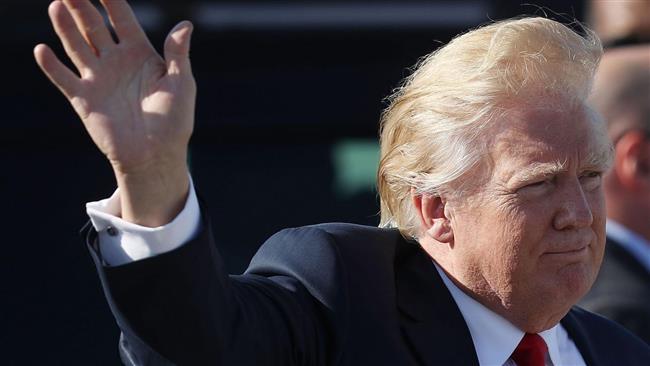

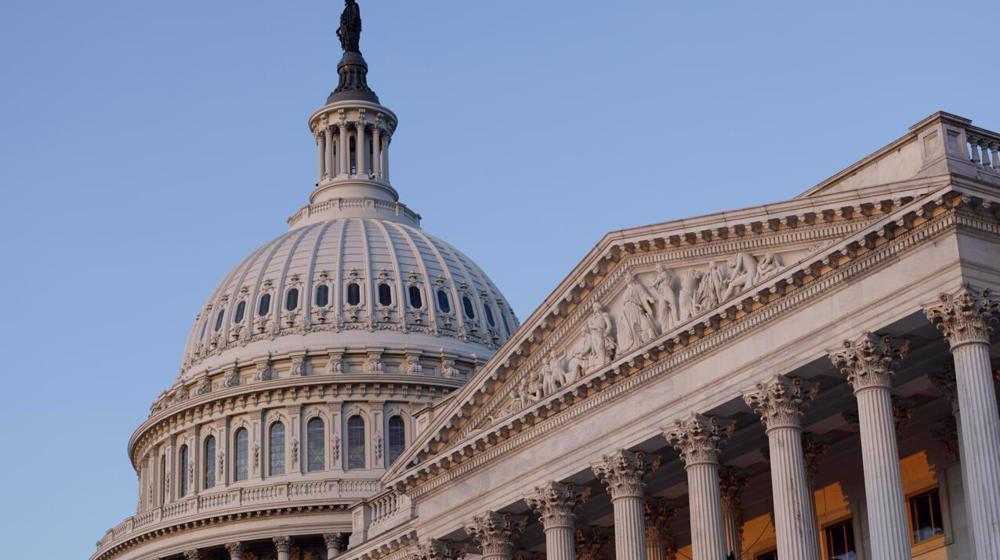
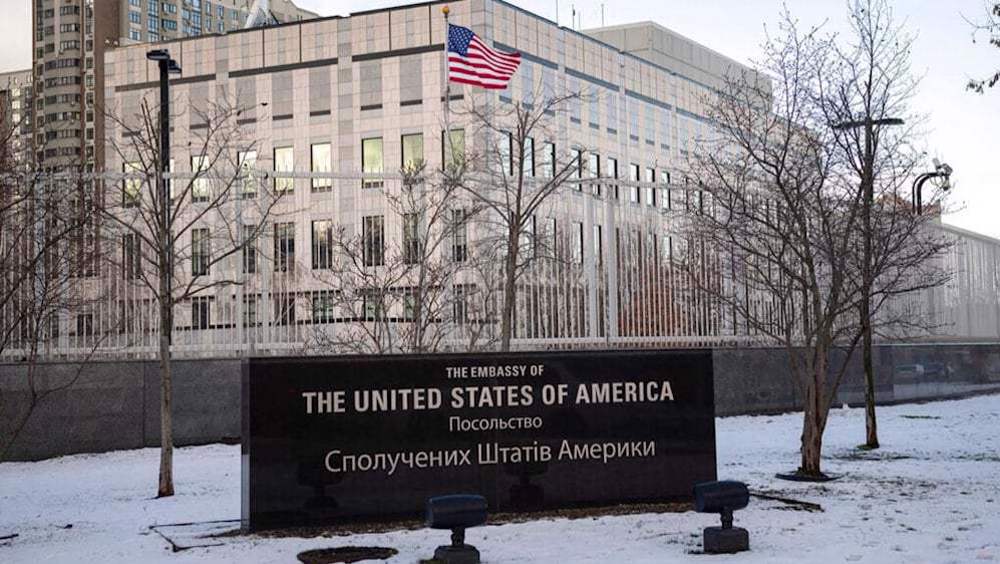



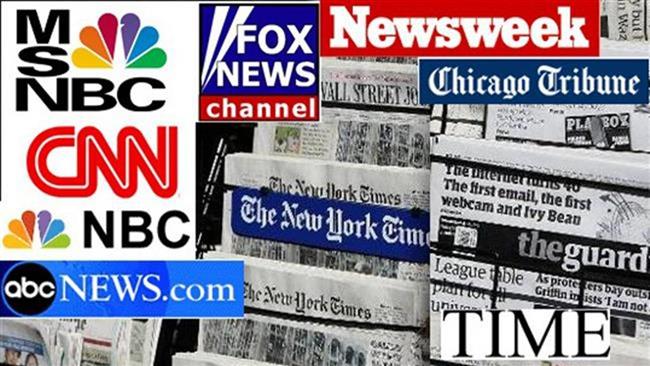
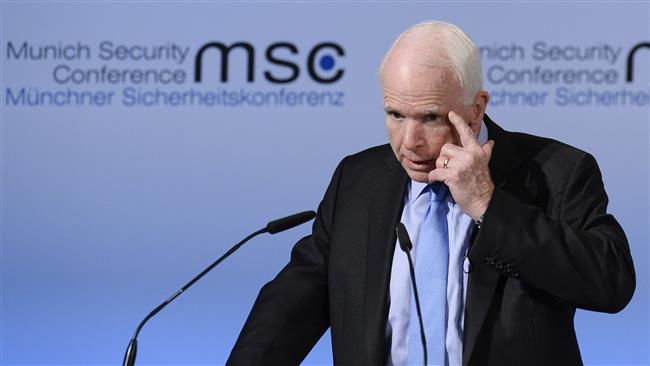
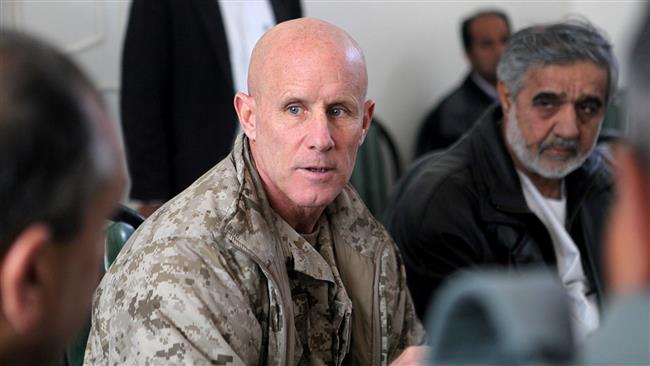
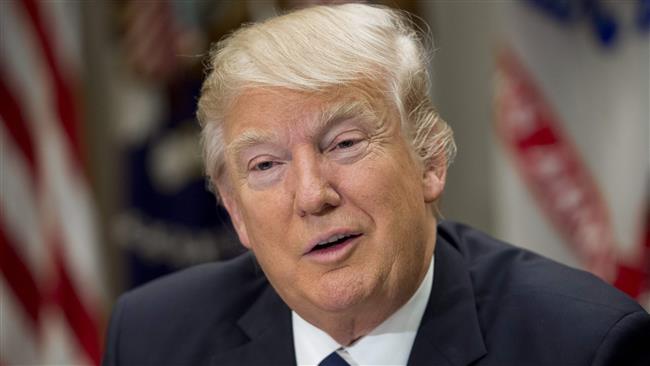
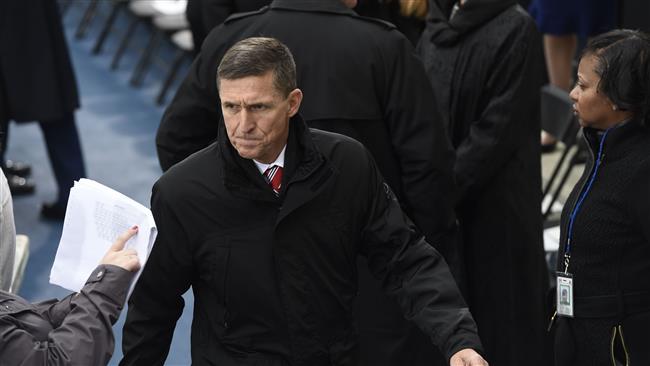

 This makes it easy to access the Press TV website
This makes it easy to access the Press TV website